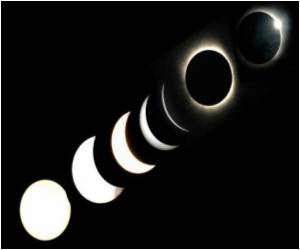Avatar director James Cameron will be among thousands of visitors turning their eyes skywards in French Polynesia on Sunday for the islands' first solar eclipse in 350 years.

The eclipse is due between 7:00 am and 10:30 am local time (1700 and 2030 GMT), leaving those on the islands to choose between two major global events: the eclipse and the football World Cup final.
"You will also be able to see the eclipse from Easter Island and the Cook Islands, but the weather conditions will be best in French Polynesia," Hamblin told AFP.
The influx of visitors is welcome in the French territory where tourism has been hit by a cyclone and a tsunami in recent months.
Sky-gazers in Tahiti's main town Papeete will see a 98.8 percent eclipse at 8:27 am on Sunday, while those in the centre of the Tuamotu archipelago, east of Tahiti, will see the sun completely obscured.
On the isolated atolls of Pukapuka et Tatakoto, the eclipse is expected to last four minutes and 41 seconds.
Advertisement
All the hotels on Tahiti, the most heavily-populated island, are fully booked in what is a gloomy time for tourism in French Polynesia.
Advertisement
An airliner from local long-haul carrier Air Tahiti Nui will fly over the Tuamotus throughout the eclipse with 300 passengers on board, while another plane from Australia will carry scientists from US space agency NASA at high altitude for the best observation conditions.
American astronomer Glenn Schneider, who has travelled to Polynesia to watch the event, said the area would not see a similar eclipse before August 4, 2176.
Local health authorities have launched an awareness campaign after a number of Polynesians damaged their eyesight during the last eclipse by watching it without proper protection for their eyes.
"This can lead to loss of vision by damaging the retina and sometimes it can be completely irreversible," Henri-Pierre Mallet, an official with the French Polynesian health service, told AFP.
Nearly 120,000 pairs of special sunglasses have been ordered and gone on sale in opticians, supermarkets and pharmacies.
Source-AFP








